31 Days of Walking with Grief: Others’ and Our Own
Day 17—Don’t Pathologize the Anger of Grief
This is a month-long series to support persons grieving and those who love them. It includes content from “Sharing Our Stories: A Hospice Whispers Grief Support Workbook” available through Amazon and wherever books are sold.
I’ve previously written for my guest blog on Hospice Times a post encouraging professionals not to mistake or write off the anger related to grief as dysfunction.
It can be a lot easier to recognize and respond caringly to grief that involves quiet tears rather than loud rants. As a culture, we’re not comfortable with death and grief, but I would argue that our relationship with anger is even more unhealthy, no matter what the anger’s source. The grief that comes out in anger may not be warm and fuzzy, but it’s no less deserving of support.
Most of us would not fault parents for raging at the injustice of the death of their child. But how many of us could sit in its presence without feeling a little freaked out and, as a result, wanting to find some way to calm that anger down?
Many do not feel comfortable expressing their own grief, much less being around others’. Sometimes, however, in the midst of our grappling with our frustration and helplessness and angst over what seems so unfair or unjust, there is no putting a muzzle on grief. We must find safe spaces and ways to get it out lest it fester inside of us and cause further damage.
Think about how anger was/is handled in your family. Consider how the significant grownups who raised you expressed their anger and responded to others expressions of the emotion. Was it loud and scary, quiet and underground, passive aggressive and harsh, avoidant and rejecting? Of the methods of handling grief that you were raised under, which ones did you adopt? Which one is the hardest for you to be around?
The more we understand our own relationship with and perception of anger, the better we will be able to navigate it when it arises during grief.
It’s an understandable and even adaptive response to anger. Think about it, the energy behind anger can be the only thing getting us up off the couch when the depression of grief wants to permanently imprint our butts there! It can keep us going and moving and push us to find answers and make meaning out of the meaninglessness of loss.
So, if you love or care professionally for those who are grieving, explore your own comfort level with anger. Spend some time reflecting on ways to unhook from getting triggered, taking it personally, and moving into a flight or fight response so that you can comfortably give it safe space to be expressed.
Let only affirmation, normalization, and validation as your response. Those grieving get enough pushback from others and need somebody to finally just GET it and not push back. Saying, “Of COURSE you feel this way” can be one of the greatest gifts you can give. Top it off with, “This sucks” or “No, this doesn’t make sense to me. I wish it did” or “I wish I had answers, and I’m so sorry I don’t.” And always end with, “I’m here with you. You’re not alone.”
If you are grieving any type of loss, take a moment to check in and see if there’s any residual grief you’ve blocked, shut down, or explained away. Look around you for those who can handle sitting with you in it without having a reaction that makes you feel like you have to shut it down to take care of them and their discomfort.
Find persons who will not quietly or openly shame, judge, or dismiss your anger. Like it or not, it’s all part of it and it all deserves space to just be until it passes through in its own time.
Till then:
- Breathe.
- Remember that this will pass.
- Remember the different between venting to and venting at another person.
- Exercise to give your body some relief. The science shows that this helps.
- Commit to not harming yourself or anyone else as you express your anger.
- Let the scribbling of your pencil help you physically and emotionally process your feelings (again, there’s science behind this).
- Write letters to the deceased, family members, G-d, the universe, or whomever else you need to tell all about it that you do not intend to send.
- Burn these, shred them and cast them out onto moving water, or read them a professional or friend who can caringly listening without interjecting or trying to talk you out of how you feel.
- Allow yourself to re-story the event in the way you wish it had ended. Look for your own sense of meaning in the story.
- Do whatever you need to do that is safe and feels right.
- Don’t forget numbers 1 and 2.
I’ll end here, but the struggle continues, and our need to respond well to anger remains. If you have insights or suggestions around this topic, I would value hearing them. Together, we’ll get even better at showing up for ourselves and each other when grief, understandably, pisses us off and draws our wrath.
Peace,
Carla
 Rev. Carla Cheatham, MA, MDiv, PhD, TRT has served hospices as a chaplain and bereavement coordinator. She’s the Section Leader for the Spiritual Caregivers Section of the National Hospice and Palliative Care Organization and an adjunct professor at the Seminary of the Southwest. Through her Carla Cheatham Consulting Group, Carla provides training and consulting for professional caregivers nationwide. She is the author of Hospice Whispers: Stories of Life and its companion volume, Sharing Our Stories: A Hospice Whispers Grief Support Workbook. Her next book, On Showing Up with Suffering: Others’ and Our Own, is set to publish in 2017.
Rev. Carla Cheatham, MA, MDiv, PhD, TRT has served hospices as a chaplain and bereavement coordinator. She’s the Section Leader for the Spiritual Caregivers Section of the National Hospice and Palliative Care Organization and an adjunct professor at the Seminary of the Southwest. Through her Carla Cheatham Consulting Group, Carla provides training and consulting for professional caregivers nationwide. She is the author of Hospice Whispers: Stories of Life and its companion volume, Sharing Our Stories: A Hospice Whispers Grief Support Workbook. Her next book, On Showing Up with Suffering: Others’ and Our Own, is set to publish in 2017.

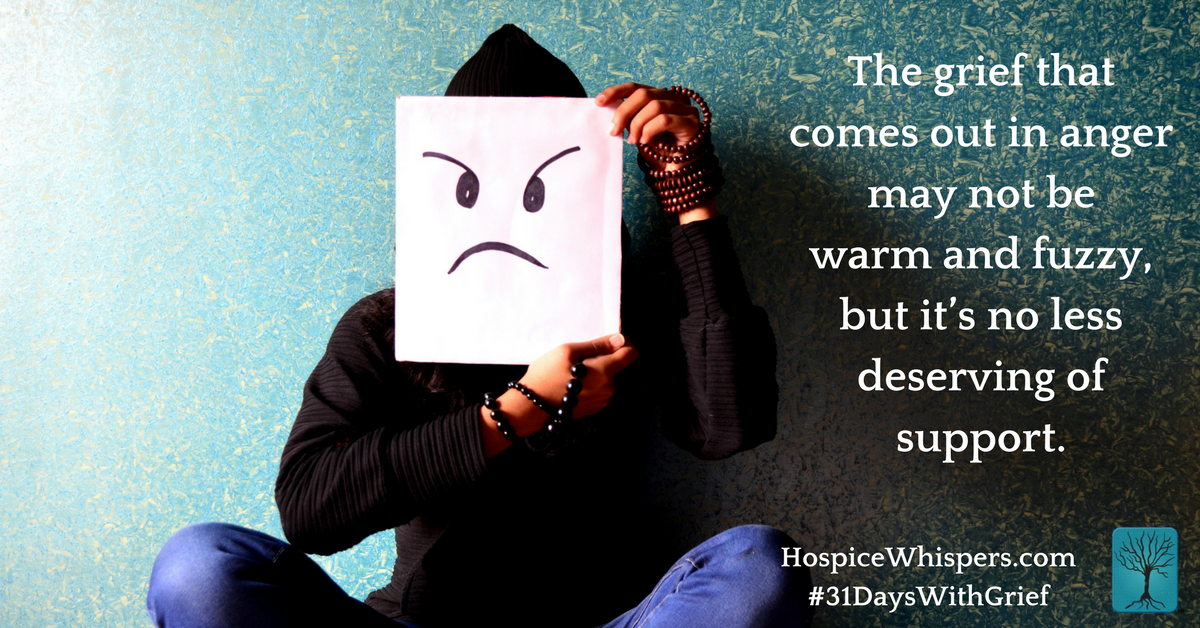

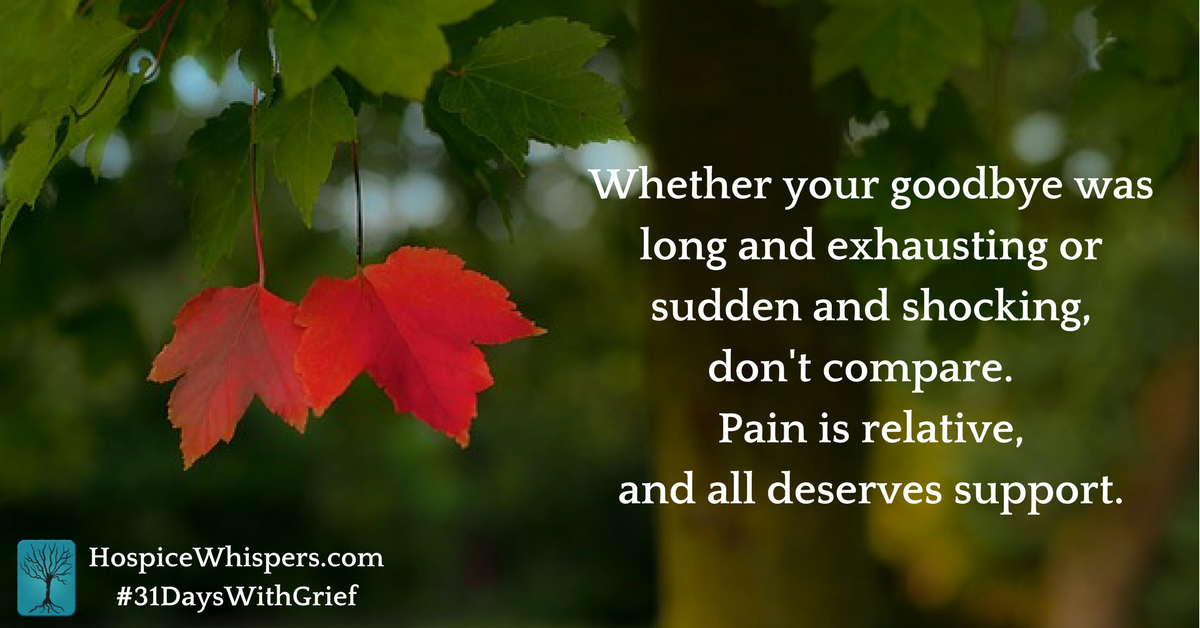
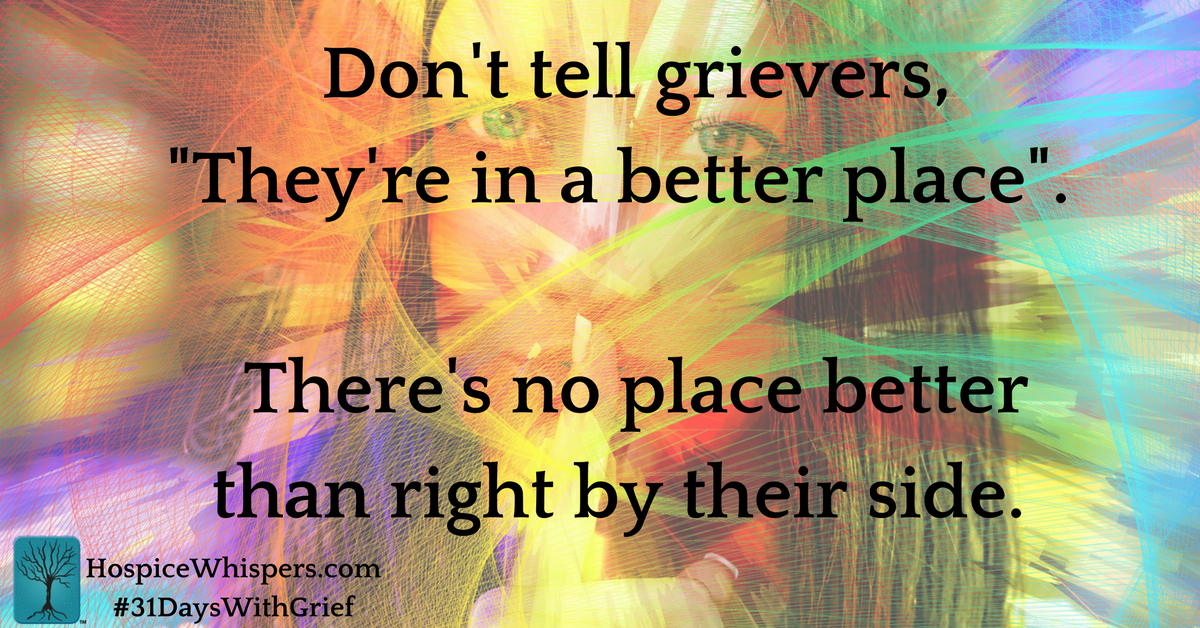
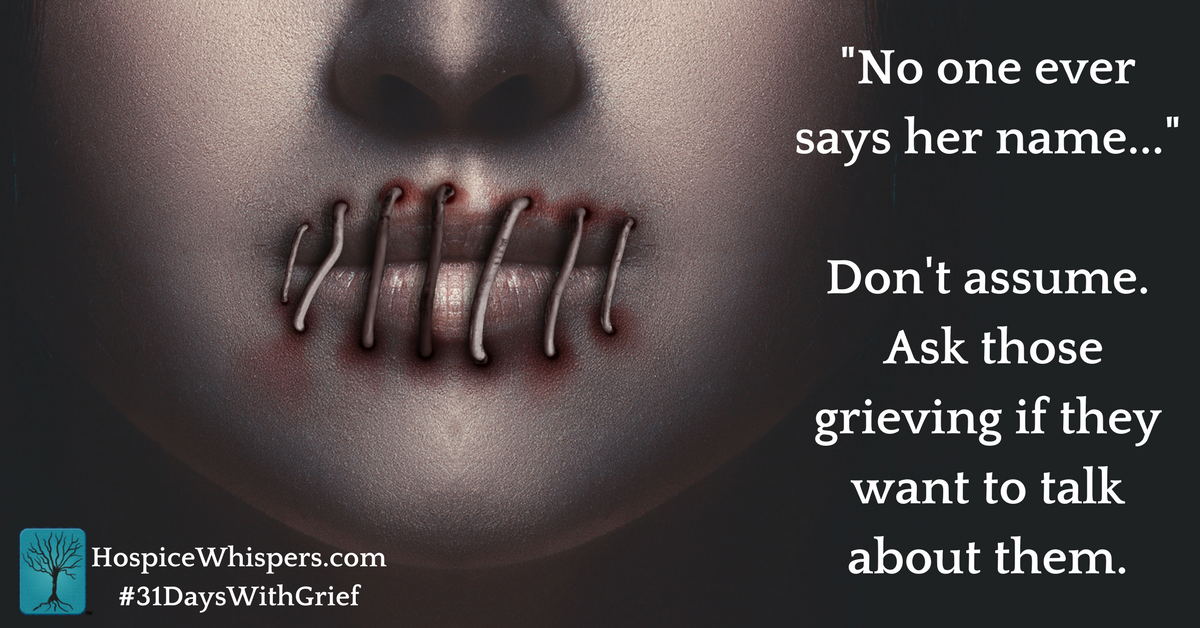
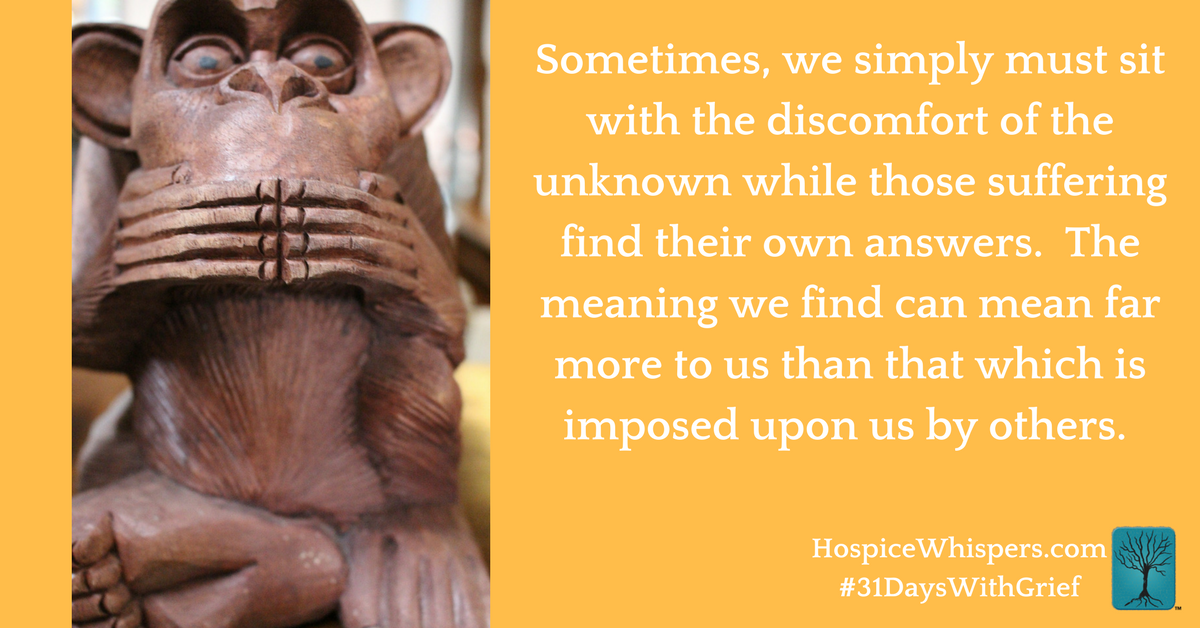
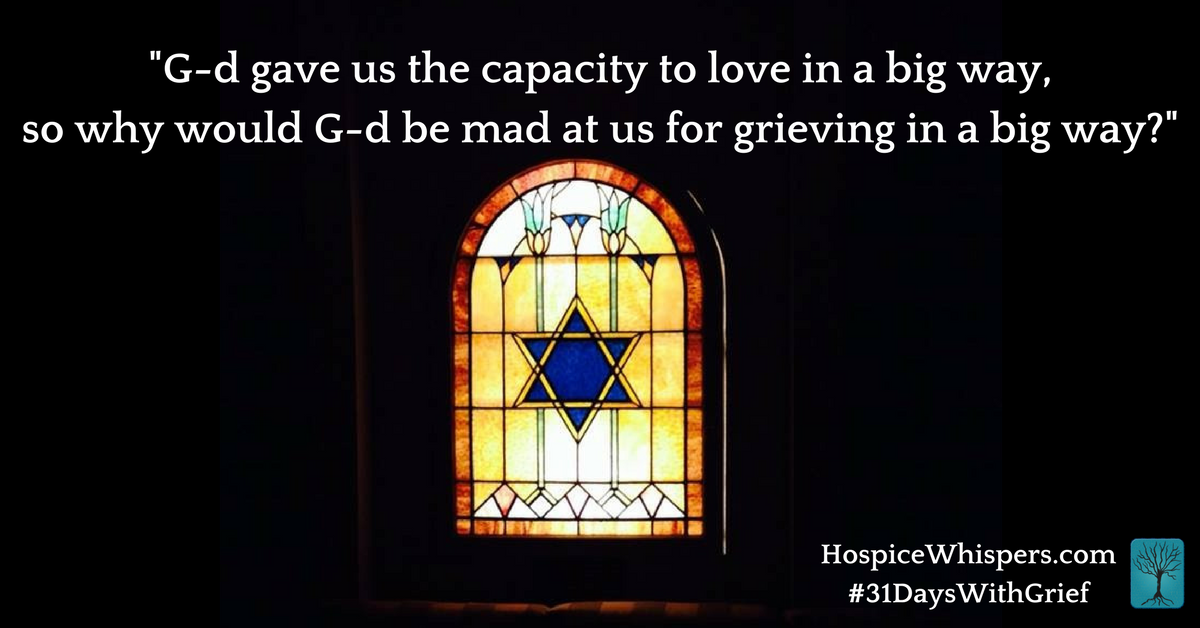
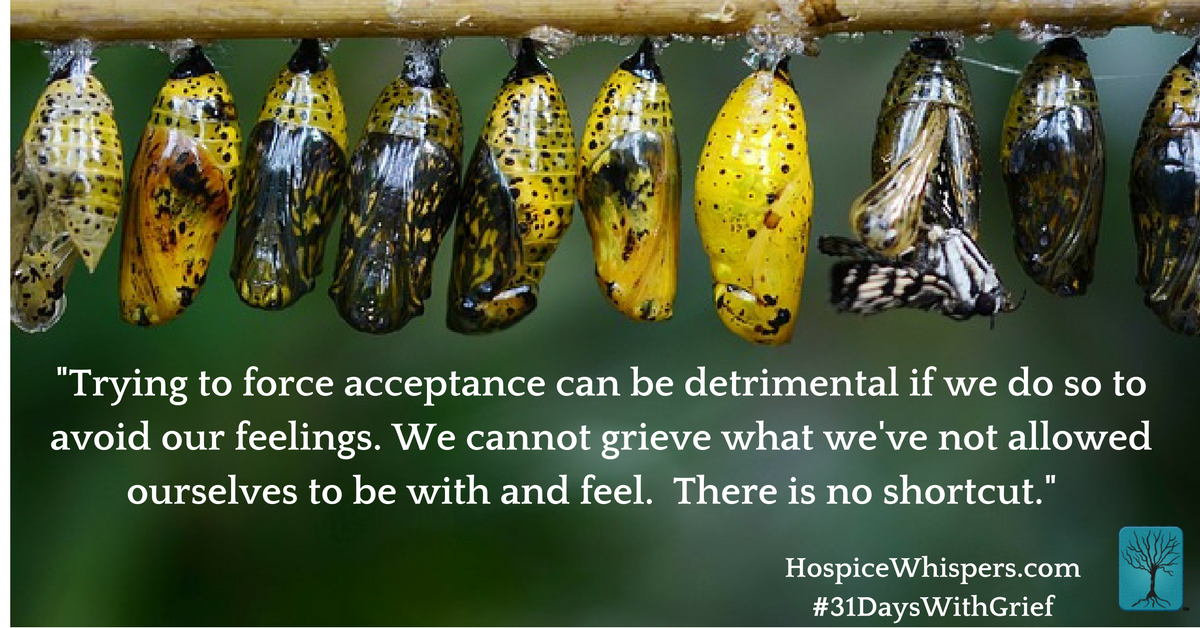
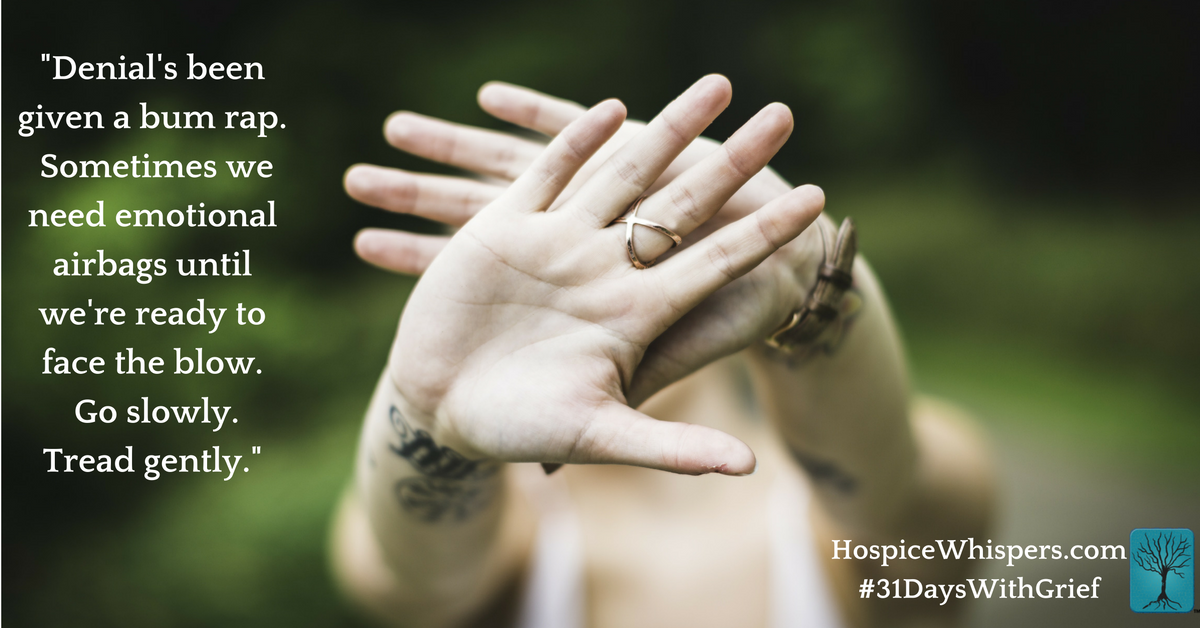
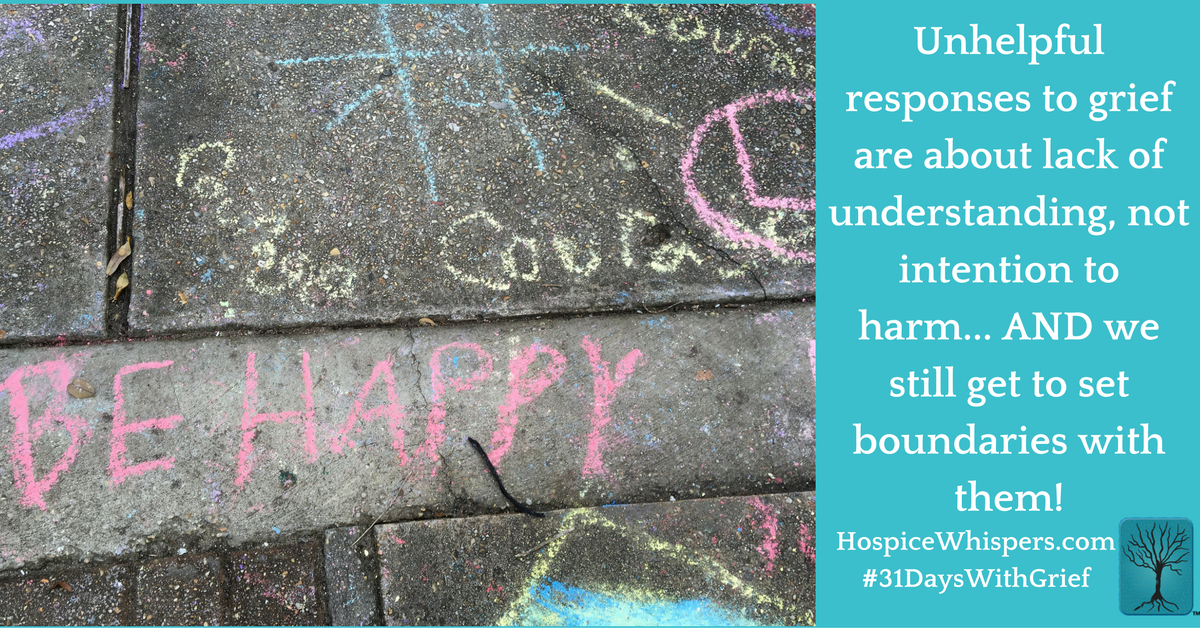
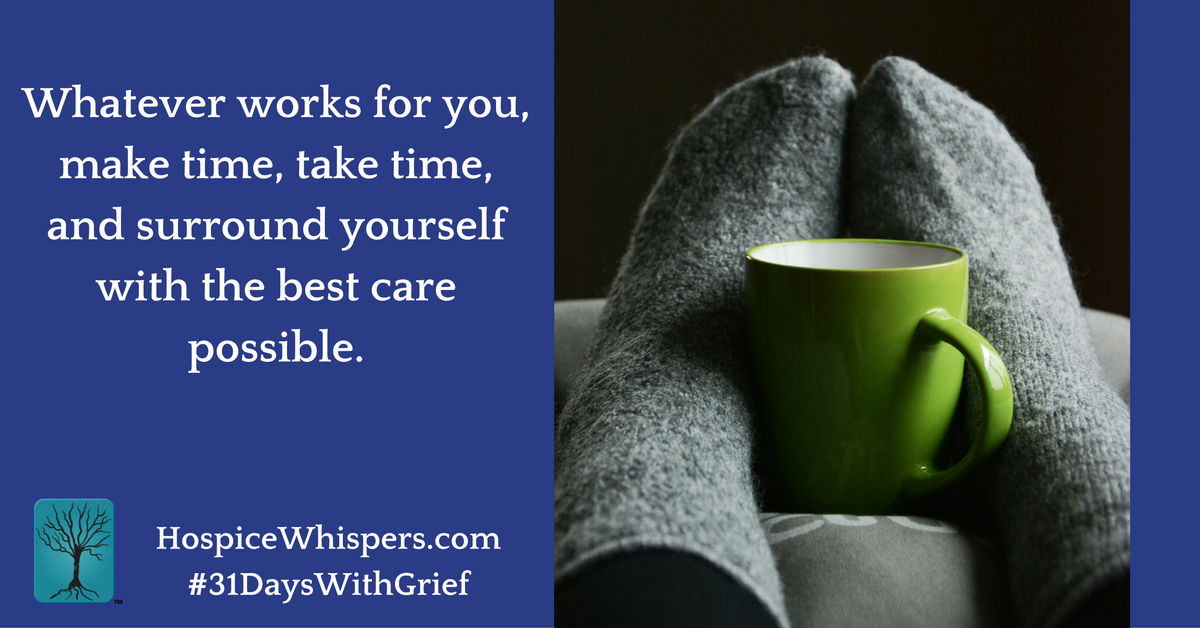
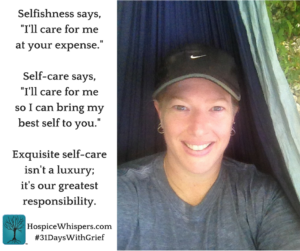 This is me in my hammock next to my favorite waterfall on my favorite hiking trail. Practicing what I teach isn’t always easy. But I’m grateful that saying these things out loud to others helps hold me accountable for actually doing them, myself! If I don’t make space for down time and silence, I quickly become a crispy critter not fit for human consumption.
This is me in my hammock next to my favorite waterfall on my favorite hiking trail. Practicing what I teach isn’t always easy. But I’m grateful that saying these things out loud to others helps hold me accountable for actually doing them, myself! If I don’t make space for down time and silence, I quickly become a crispy critter not fit for human consumption.